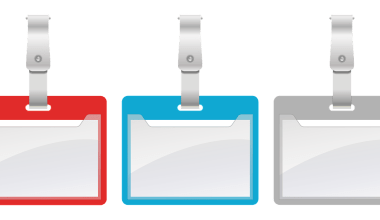If you’ve ever wondered how music is tracked across the world, then understanding ISRC and how to search for it is essential. ISRC, or the International Standard Recording Code, is like a digital fingerprint for music tracks. Whether you’re an artist, a label, or just someone curious about how music metadata works, this guide will walk you through the ins and outs of ISRC search and why it’s so important.
What Is an ISRC Code?
Let’s start with the basics. An ISRC is a unique identifier assigned to individual music tracks, music videos, and other recordings. Think of it as a barcode specifically for audio and visual recordings. It consists of 12 characters and breaks down into four key parts:
- Country Code: The first two letters represent the country of origin.
- Registrant Code: The next three characters identify the registrant, usually a record label or an artist.
- Year of Reference: These two digits indicate the year the ISRC was assigned.
- Designation Code: The last five digits are a unique number for that particular recording.
Knowing this structure makes it easier to search and decode ISRC information when you need it.
Why Is ISRC Important?
For artists and labels, the ISRC plays a critical role. It ensures that tracks are properly recognized and royalties are correctly distributed. In today’s digital age, where music is streamed across countless platforms, the ISRC acts as the backbone of music tracking. Without it, tracking ownership and usage of recordings would be a logistical nightmare.
An ISRC search can help you:
- Verify ownership of a track
- Ensure metadata accuracy
- Monitor how and where a track is being used
- Resolve royalty disputes
How to Search ISRC Codes
Searching for an ISRC code might seem complicated at first, but it’s easier than you think. Here are some straightforward methods to help you locate the ISRC for a track:
1. Check Music Distribution Platforms
Many music distribution services, like CD Baby, DistroKid, and TuneCore, provide ISRCs when artists upload their tracks. If you’re the artist or label managing the track, log in to your account to retrieve the ISRC.
2. Use Online ISRC Search Tools
There are several online tools that allow you to search for ISRCs. These platforms typically require the track’s name, artist, or album information. Some well-known ISRC search databases include:
These tools are user-friendly and provide accurate results when searching for ISRCs.
3. Contact the Record Label
If you’re unable to find the ISRC online, contacting the record label associated with the track can be a good solution. Labels maintain detailed metadata, including ISRCs, for all the music they release.
4. Check Streaming Platforms
Some streaming services, such as Apple Music or Spotify, may display ISRC information in the metadata of a track. You can use music analysis tools or third-party software to extract this data.
Tips for Accurate ISRC Searches
When performing an ISRC search, a few best practices can save you time and effort:
- Use Correct Metadata: Ensure you have the correct track title, artist name, and album details. Typos can lead to incorrect or incomplete results.
- Search Multiple Platforms: Don’t rely on just one database. Using multiple sources increases the chances of finding accurate information.
- Stay Updated: Metadata changes can occur, especially if a track has been re-released. Always check for the most recent ISRC assignment.
Common Questions About ISRC Searches
Can I assign my own ISRC?
Yes, if you are an independent artist or label, you can assign ISRCs to your recordings. You need to register with your country’s ISRC agency to obtain a registrant code.
Are ISRCs used for covers and remixes?
Yes, even covers and remixes require their own ISRC codes because they are considered unique recordings.
How much does it cost to search for ISRCs?
In most cases, searching for ISRCs is free. However, some tools and platforms may charge a fee for advanced search capabilities.
The Role of ISRC in Music Distribution
ISRCs are integral to modern music distribution. They ensure that every time your song is played on radio, streamed online, or used in a commercial, you get the credit you deserve. ISRCs also make it easier for music distributors to catalog and organize tracks in their libraries.
With the rise of streaming platforms like Spotify, YouTube, and Apple Music, ISRCs have become even more critical. They ensure proper tracking of streams and help artists receive accurate royalty payments.
ISRC and Music Licensing
Another area where ISRC codes prove invaluable is music licensing. When your song is used in a film, TV show, or advertisement, the ISRC helps licensing agencies track its usage. This ensures fair compensation and proper attribution.
For example, if your track gets featured in a popular TV show, the ISRC ensures that royalties are distributed accurately. Without an ISRC, tracking this usage would be almost impossible.
How ISRC Benefits Independent Artists
For independent artists, ISRC codes level the playing field. They allow you to compete with major labels by ensuring your music is properly tracked and credited. Many independent distribution platforms assign ISRCs for free, making it accessible to everyone.
Troubleshooting ISRC Issues
Sometimes, ISRC searches don’t go as planned. Here are a few common issues and how to resolve them:
- Missing ISRC: If you can’t find an ISRC, check with the distributor or label that released the track.
- Duplicate ISRCs: Ensure that each track has a unique ISRC. Duplicate codes can cause tracking errors.
- Incorrect Metadata: Double-check all metadata before performing an ISRC search to avoid mismatches.
The Future of ISRC
As music technology evolves, so does the role of ISRC. With advancements in AI and blockchain, ISRCs may become even more integrated into music tracking and royalties. For artists, labels, and distributors, understanding ISRC is more important than ever.
Final Thoughts
Searching for an ISRC doesn’t have to be overwhelming. With the right tools and knowledge, you can easily locate the ISRC for any track. Whether you’re an artist, a music professional, or just someone exploring the world of music metadata, ISRC searches are a valuable skill to have.
By leveraging ISRC codes effectively, you can ensure accurate tracking, fair royalties, and proper credit for every piece of music you create or manage.
For further reading, explore these related articles:
- Taylor Swift Spotify Streams: How She Became the Queen of Streaming
- Mo Bamba Lyrics: The Story of a Song That Took the World by Storm
For additional resources on music marketing and distribution, visit DMT Records Pvt. Ltd..






